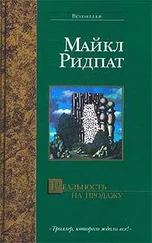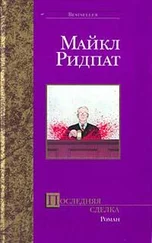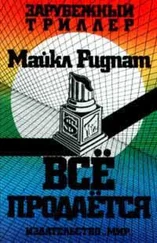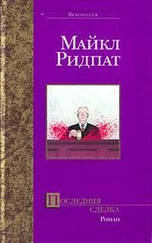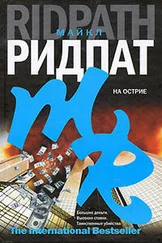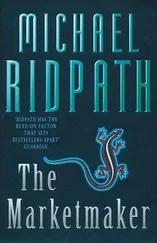‘Yes. Or they say they did. They say they found some evidence of minor fraud. The perpetrator admitted to it and also claimed he had bribed Tryggvi Thór to keep quiet. He was the guy Tryggvi Thór claimed was the whistle-blower.’
‘Oh. Did it go to court?’
‘No. It was all hushed up. The insurance company agreed not to press charges. Tryggvi Thór was fired; the fraudster was fired from the insurance company. From what you say, nothing was put in the file.’
‘Why was it hushed up?’
‘That’s a good question,’ said Emil.
Vigdís frowned. ‘What was his name, this fraudster?’
‘I can’t remember. I may never have known. I didn’t work on the case.’ Emil’s voice was flagging, his words were now so slurred they were hard to make out.
‘Can you remember the name of the insurance company?’
Emil closed his eyes. Was he trying to remember, or was he going to sleep? ‘Emil?’
‘It was Hekla Fire and Accident,’ he said.
Vigdís made a note. ‘And who was Tryggvi Thór’s boss at that point? Who fired him?’
‘It was Thorkell. Thorkell Holm. He must have retired by now.’
He had. Three years previously.
‘What was Tryggvi Thór’s reaction?’
‘He was angry. He tried to fight it, but he didn’t get anywhere. In the end it was almost as though he quit in disgust. I saw him afterwards for a drink, and he said he was going to Africa to do some good. He was very angry.’
‘And you?’
‘It didn’t seem right to me. But then I’ve always liked Thorkell — I couldn’t believe he would get rid of Tryggvi Thór unless there was a good reason.’
‘And what do you think that reason was?’
‘That’s another good question,’ Emil said. Then he closed his eyes. Within seconds his face had relaxed and his breathing became lighter, more regular. He was fast asleep.
As Vigdís drove back to Reykjavík she pondered what Emil had told her. It certainly sounded like a set-up. But, as Emil himself had admitted, there were two sides to most stories. Vigdís too had liked Thorkell: he had been her ultimate boss, the chief superintendent in charge of CID in the Reykjavík Metropolitan Police. He was also Árni’s uncle.
Back at the station, Vigdís looked up Hekla Fire and Accident, a company she could dimly remember hearing of. It took a few minutes, but she eventually found it. It had been bought by a businessman in 1994, and in 1999 had been merged with another, larger insurance company recently acquired by the same man, and changed its name. Tryggvi Thór’s sacking would have happened in about 1996.
None of that particularly attracted her attention. But the name of the businessman did.
Jakob Ingibergsson.
The man whom she had seen at Tryggvi Thór’s bedside.
After a businesslike meeting at the prosecutor’s office in Qaqortoq, where they tackled the bureaucracy of international police cooperation, Magnus and Paulsen took a helicopter back up the fjord to Narsarsuaq. He told her he wanted to speak to the archaeologist who had been on the dig with Carlotta, Einar and Eygló at Brattahlíd in 2011. Paulsen was surprised, but was happy to proceed on the Rósa case without him. As far as she was concerned, unless they found one, or preferably two, witnesses who were certain Einar was somewhere other than the Blomsterdalen when Rósa was murdered, he was going down.
Magnus called Eygló from the airport at Narsarsuaq and asked her if she would help him track down Anya Kleemann. Paulsen found a local to take them across the fjord: a short Greenlander named Noah who didn’t speak any English. They picked up Eygló at the hotel and drove down to the harbour. Within a couple of minutes they were speeding across the water in a small motorboat, weaving around the icebergs.
About half a mile downstream, towards the sea, a water jet spouted several feet into the air. A moment later a tail fin flapped and disappeared beneath the surface.
Noah turned to them and grinned. ‘ Hval ,’ he said in Danish. The same as the Icelandic word. Whale.
‘Tom came to see me last night,’ said Eygló.
‘Did he threaten you? If he threatens you I can warn him off. Or get Inspector Paulsen to arrest him.’
Eygló grinned. ‘He did threaten me. I was scared at first. But I handled him. He was bluffing.’
Despite all that had happened, she seemed to Magnus to be stronger that morning.
‘Where is Einar?’ she asked.
‘In a police cell in Qaqortoq police station.’
‘It doesn’t look good for him, does it?’
Magnus shook his head.
‘I’m still sure he didn’t kill Rósa.’
‘That’s up to Inspector Paulsen to decide,’ said Magnus. As soon as the words were out of his mouth, he wondered why he had passed the buck so easily.
They reached the little harbour at Brattahlíd, and Noah tied up the boat. He told Eygló to wait in Danish. Magnus and Eygló stood next to a wall running along the side of the dock, surrounded by empty pallets, a pile of tyres, some gas canisters and a couple of trailers. The red kiosk was empty, but an old Land Rover was parked a few yards down the track.
It was low tide, and about a hundred yards further along the shore, a berg had become stranded on a patch of brown sand, a giant ice cube sweating in the sun. Two local boys, dressed only in swimming trunks, were trying to push it, but it wouldn’t budge. To Magnus’s amazement, one of them turned and sprinted into the sea, splashing and laughing. The other joined him with no hesitation. The sea temperature couldn’t have been more than a few degrees above freezing; even the craziest of Icelanders, and there were some pretty crazy Icelanders, wouldn’t have tried that.
A hairy hiker carrying a massive rucksack trudged into view. He sat down a few feet away, dislodged his load and swigged water from a bottle. The aroma of a week in the wilderness assailed Magnus’s nostrils.
‘How far is it to Anya’s site?’ said Magnus.
‘About seven or eight kilometres.’
‘I hope Noah is coming up with transport.’
They waited a moment, Eygló examining her phone.
‘Did Professor Beccari call you this morning?’ Magnus asked.
‘Yes,’ said Eygló. ‘He had heard about a murder at Narsarsuaq and was worried it might be one of us. I told him it was.’
‘Did he seem surprised when you said it was Rósa?’
‘Er...’ Eygló hesitated. ‘I’m not sure. Concerned, yes. Agitated. But actually, it was as if he was expecting it.’
Magnus told her about Beccari’s brief conversation with Rósa and Rósa’s message for Carlotta’s parents, if that was indeed whom it was intended for.
‘Wow,’ said Eygló.
‘It struck me that your conversation with her was similar,’ Magnus said. ‘When she told you about her cancer.’
‘Yes, that’s true.’
‘Was it definitely cancer she was talking about? Could it be that she thought her life was in danger? That someone was about to murder her?’
Eygló considered the question. ‘No, she was definitely talking about cancer. But maybe she was doing the same thing with me: preparing for her death. It was just sooner than she led me to believe.’
She frowned. ‘This really doesn’t look good for Einar, does it? I mean, if Rósa told Professor Beccari something was going to happen to her soon, it implies she thought she was going to be killed. And Einar is the obvious killer.’
Magnus nodded. ‘That’s what Inspector Paulsen thinks.’
‘And you?’
‘I think that too,’ Magnus admitted.
His phone rang. It was Vigdís describing her interview with Emil, and seeing Jakob Ingibergsson at Tryggvi Thór’s bedside: the man who owned the insurance company and who had got Tryggvi Thór thrown out of the police force.
Читать дальше

